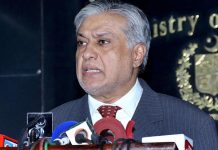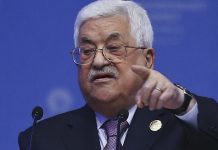REYKJAVIK: Iceland’s government named a new prime minister and called for early elections in the autumn on Wednesday, a day after Prime Minister Sigmundur David Gunnlaugsson quit to become the first global politician brought down by the “Panama Papers” leaks.
It was unclear whether the naming of Fisheries Minister Sigurdur Ingi Johannsson to head the government or the call for early elections would satisfy the thousands of Icelanders who in street protests this week demanded the government resign immediately for early elections.
Gunnlaugsson quit as prime minister on Tuesday after leaked documents from a Panamanian law firm showed his wife owned an offshore company that held millions of dollars in debt from failed Icelandic banks.
The government said the decision to hold elections in autumn would give it time to follow through on one of the biggest economic policy changes in decades – the ending of capital controls introduced to rescue the economy from the 2008 financial crisis.
Johannsson, who had served also as agriculture minister in the government, told reporters the government would further pursue its big projects of the last three years, the largest being the abolition of capital controls.
The opposition has been trying to force a new election with a vote of no confidence in the government, which could lead to a radical political shift.
A few thousand demonstrators, though fewer than on Monday, gathered for another evening of protests in front of the parliament building on Wednesday.
Protesters, already fed up with the financial and political elite after the 2008 banking crisis wrecked their economy, have gathered the last three nights in the capital Reykjavik, some pelting parliament with yoghurt and eggs.
The Panama documents revealed that Gunnlaugsson’s wife owned a previously undisclosed firm with what the government says is $4.1 million in claims on the island’s collapsed banks. His opponents have said that represents a conflict of interest, because the government is negotiating the value of such claims.





